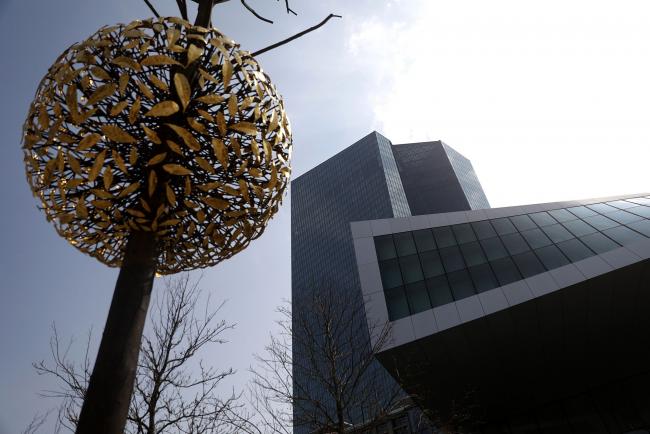(Bloomberg) -- Go inside the global economy with Stephanie Flanders in her new podcast, Stephanomics. Subscribe via Pocket Cast or iTunes.
The European Central Bank will return to quantitative easing next year in response to the prolonged economic slowdown, ABN Amro said Tuesday.
In what looks like one of the boldest calls among ECB watchers, ABN economist Nick Kounis predicts policy makers will start buying 70 billion euros ($79 billion) of bonds a month from January and continue through September.
“Concerns about low inflation and low inflation expectations were already building even under the ECB’s more optimistic scenario,” Kounis said in a note. The “ongoing sub-trend growth will make it more likely that inflation will significantly undershoot the price stability goal over the central bank’s policy-making horizon.”
If his predictions turn out to be correct, the decision to restart the QE will need to be take by the new ECB president, who will succeed Mario Draghi later this year. The list of front-runners includes Bundesbank President Jens Weidmann, who has been one of the most vocal critics of bond purchases.
Relaunching QE would force the ECB to tweak some of the parameters of the previous program that ended last year, according to Kounis. Policy makers would need to raise the limit on the share of bonds they can buy from a single issuers from the current 33% to as high as 50%.
The program will again include government debt and covered bonds, although the share of corporate bonds could be larger than in the past, Kounis said. He doesn’t expect rate cuts in the foreseeable future, as taking them even deeper below zero would hurt banks.
The Governing Council is meeting in Vilnius, Lithuania this week amid rising trade tensions and falling market-based inflation expectations. Economists predict officials will offer generous terms on the new round of longer-term funding from banks, but refrain from other measures.
